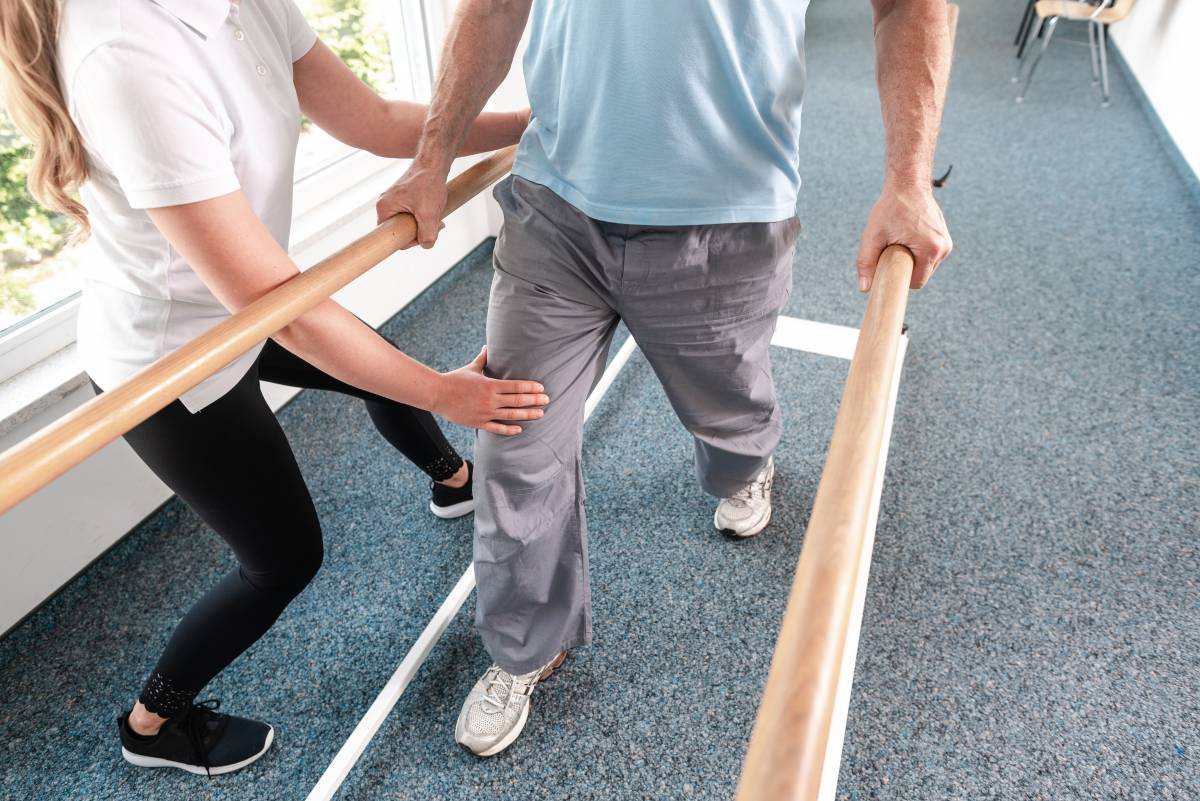Delivering more rehabilitation to help people after a stroke will 'challenge' services, admits NICE
People who have had a stroke should receive rehabilitation for at least three hours a day on at least five days of the week, with programmes being delivered by teams including physiotherapists, occupational therapists and speech and language therapists.
That is one of the key recommendations contained in an updated guideline on stroke rehabilitation in adults that was published yesterday (18 October) by the National Institute for Health and Care Excellence (NICE).
Explaining why it was recommending more rehabilitation than it had called for in an original guideline published 10 years ago, NICE said an independent committee had reviewed the evidence.
This showed that more intensive rehabilitation improved people’s quality of life and activities of daily living, while people recovering from stroke, and their families and carers, had called for rehab options that would help them to recover faster.
Implementing changes will be a 'challenge'
Jonathan Benger, NICE’s chief medical officer, said: ‘We recognise the challenges the system faces in delivering these recommendations, not least the problems inherent in increasing service capacity and staff. We also know current practice is inconsistent, even when it comes to implementing our previous recommendations.
‘But equally it shouldn’t be underestimated how important it is for people who have been left with disabilities following a stroke to be given the opportunity to benefit from the intensity and duration of rehabilitation therapies outlined in this updated guideline.'
Professor Benger added: ‘By focusing on what matters most, we need to find ways to enable people who have had a stroke to access the level of rehabilitation that supports their recovery and meets their long-term needs and goals.’
We recognise the challenges the system faces in delivering these recommendations, not least the problems inherent in increasing service capacity and staff [Jonathan Benger, NICE]
Jon Brown, director of strategic partnerships at Barnardo’s who chaired the guideline committee, said: ‘The impacts of stroke are significant, and this updated guideline provides a comprehensive, current, evidence-led synthesis of best practice in stroke rehabilitation. The guideline committee comprised an impressive mix of clinical and lived experience and this product of the committee's work will make a significant contribution to improving outcomes for stroke survivors.’
Many survivors getting a 'fraction' of what's needed
Maeva May, associate director for policy and research at the Stroke Association, welcomed NICE's announcement. 'Sadly, stroke is still a leading cause of adult disability and it has wide-ranging impacts so it’s vital that every stroke survivor gets the support they need to give them the best chance of recovery.
'Research shows that frequent and more intense rehabilitation leads to better recovery following a stroke but many stroke survivors only receive a fraction of what this guideline recommends, leaving many without support and limiting their improvement post-stroke.'
Dr May added: ‘Every stroke is different and so is every recovery, so it’s important that stroke survivors can access person-centred support for as long as they need it, so they can regain their independence and rebuild their lives after stroke.'
Telerehabilitation and other approaches
In addition to the new recommendations on the intensity of stroke rehabilitation, the updated guideline also makes new recommendations in several other areas including telerehabilitation, the assessment of visual and hearing impairments and measuring fatigue.
Telerehabilitation should only be used instead of – or as well as – face-to-face therapy, if
- the person after stroke agrees to this approach or it is their preferred type of therapy and
- it aligns with their rehabilitation goals
Share it with















